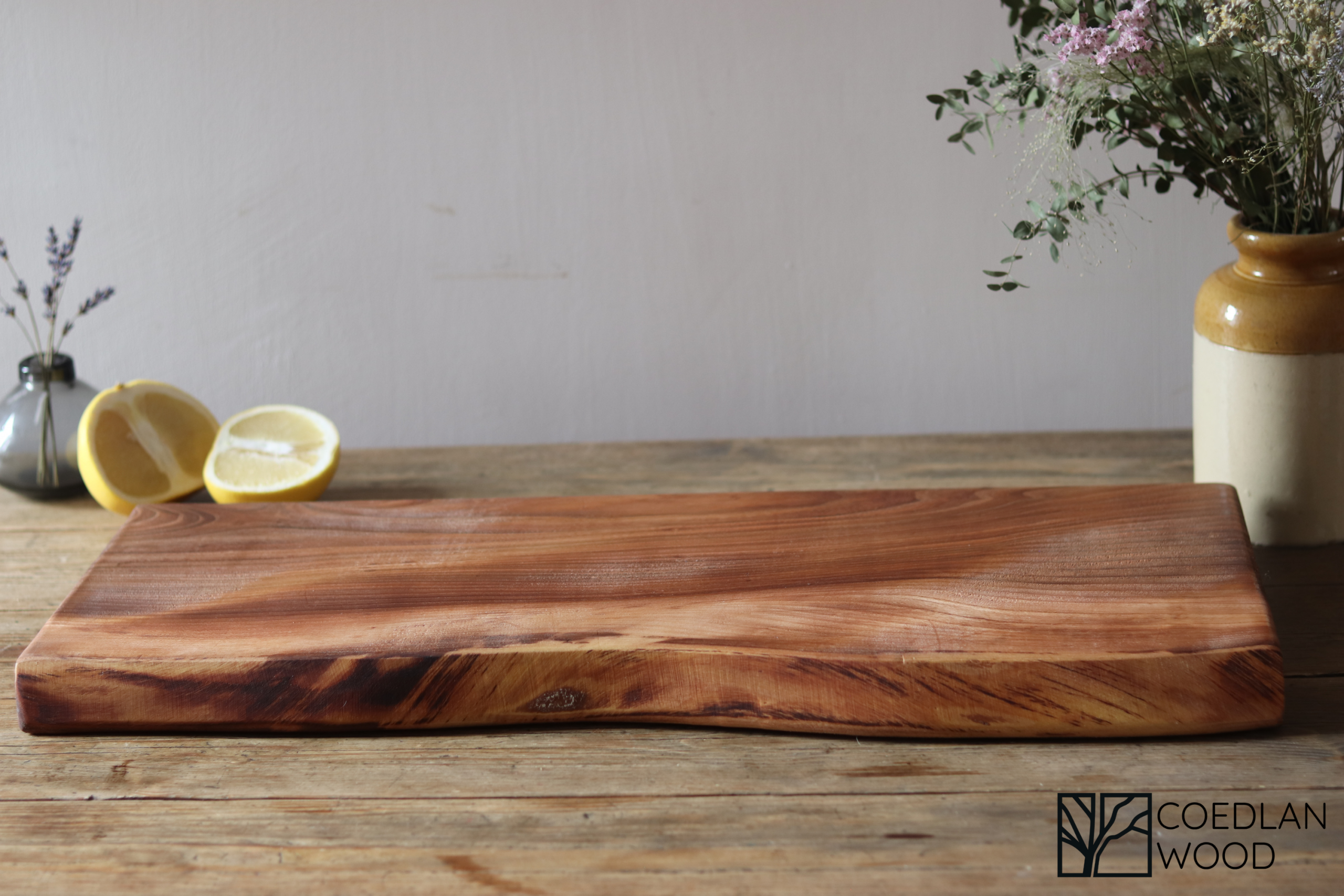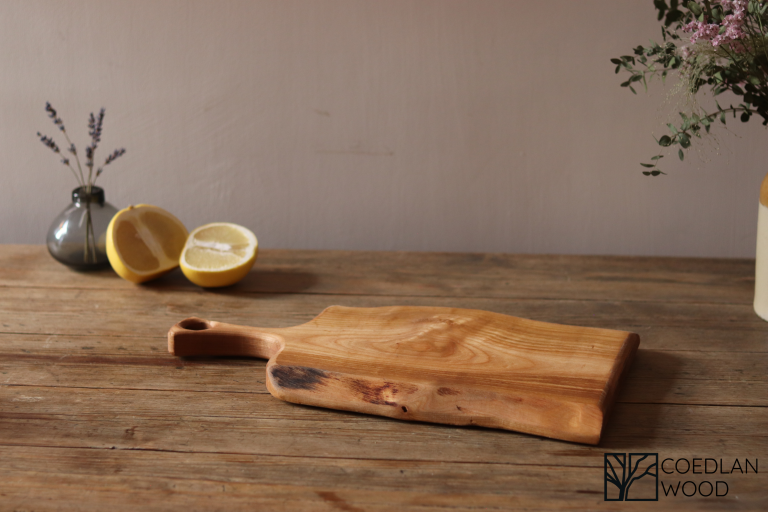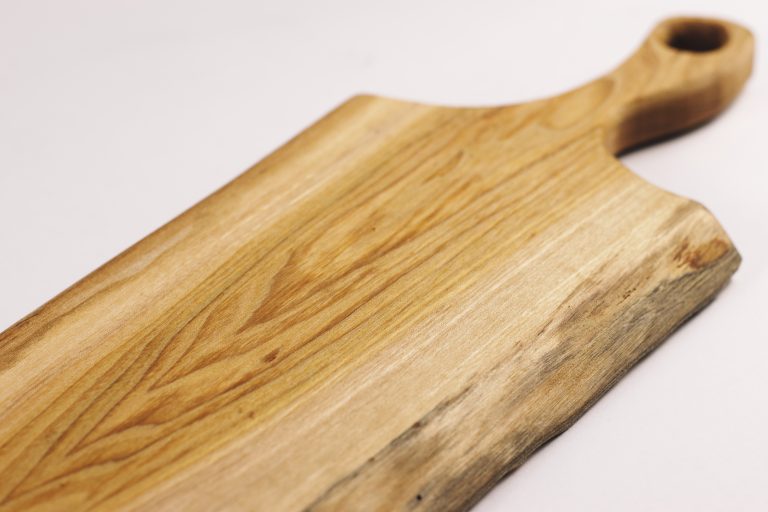When it comes to choosing a chopping board, one of the most common questions people ask is whether wood is a safe and hygienic option. Plastic boards have often been marketed as “cleaner,” but research and experience tell a very different story. In fact, wooden chopping boards, when cared for properly, can be one of the most hygienic and durable choices for your kitchen.
The Science Behind Wood’s Natural Hygiene
Wood has a fascinating ability to fight bacteria on its own. Studies have shown that bacteria such as E. coli and Salmonella die off much faster on wooden boards than on plastic ones.
Why?
- Porous structure: The fibres in natural wood draw moisture (and bacteria) down into the board, where they become trapped and eventually die.
- Natural compounds: Many hardwoods used for chopping boards contain natural antimicrobial properties.
- Self-healing: Unlike plastic, which can scar permanently with knife marks (providing perfect hiding spots for bacteria), wooden boards tend to “close up” small cuts as the fibres swell with moisture and dry again.
Comparing Wooden vs Plastic Boards
- Plastic boards: Easier to put in the dishwasher, but knife marks create grooves where bacteria thrive – and those cuts never heal.
- Wooden boards: Require a little care (hand washing and occasional oiling), but they actively resist bacteria and last for many years.
In professional kitchens, it’s common to see chefs choosing heavy-duty wooden boards because they’re reliable, long-lasting, and safe.
Keeping Your Wooden Chopping Board Hygienic
A wooden chopping board is only as good as the care you give it. Luckily, it doesn’t take much:
Clean properly after each use
- Wash with warm, soapy water and dry immediately.
- Never leave your board soaking in the sink, as this can cause warping and cracking.
Disinfect naturally when needed
Sprinkle coarse salt and rub with half a lemon to lift stains and neutralise odours. For extra cleaning, a splash of white vinegar works wonders.
Oil regularly
Apply a food-safe oil (such as a mineral oil or a dedicated chopping board oil) every few weeks to keep the wood nourished and sealed. This prevents the board from drying out and makes it more resistant to bacteria and staining.
What About Boards with Knots or Live Edge?
At Coedlan Wood, many of our chopping boards celebrate the natural character of the timber – including knots, grain variations, and live edges. These features are perfectly safe and do not compromise hygiene.
- Knots: Naturally part of the wood and sealed by oiling, they do not harbour bacteria when properly cared for.
- Live edges: More aesthetic than functional, but just like the rest of the board, they’re cleaned and maintained in the same way.
The Verdict
Yes, wooden chopping boards are hygienic. In fact, they can be safer than plastic alternatives. With simple care (cleaning, drying, and regular oiling) a wooden board will serve you for years, staying both beautiful and safe.
So, if you’re weighing up your options, you can feel confident that choosing wood isn’t just about style – it’s also a smart, hygienic choice for your kitchen.
Ready to find yours? Explore our collection of handmade wooden chopping boards today.








